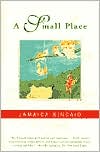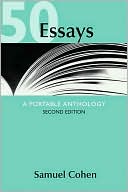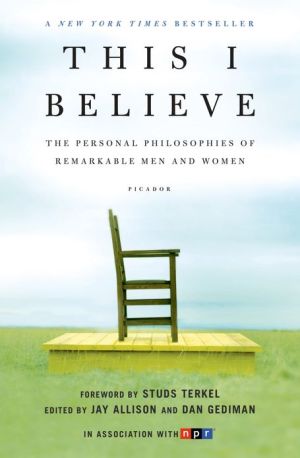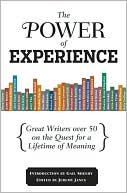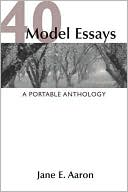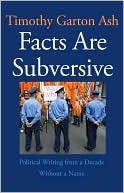Small Place
A brilliant look at colonialism and its effects in Antigua—by the author of Annie John\ "If you go to Antigua as a tourist, this is what you will see. If you come by aeroplane, you will land at the V. C. Bird International Airport. Vere Cornwall (V. C.) Bird is the Prime Minister of Antigua. You may be the sort of tourist who would wonder why a Prime Minister would want an airport named after him—why not a school, why not a hospital, why not some great public monument. You are a tourist and...
Search in google:
This expansive essay shows us — in a delighfully Swiftian mode — what we have not yet seen of Antigua, the small island in the British West Indies where Kincaid grew up.Library JournalKincaid here examines the geography and history of Antigua, where she was raised. We first see the island through the eyes of the typical North American tourist, who aims to exchange his or her own ``everydayness'' for that of someone without the same privilege. But rather than interpret Antiguan experience for outsiders, Kincaid lays bare the limits of her own understanding. She asks us to grasp the crime of empire in a new way, stressing that it can be understood only from a post-colonial point of view: surveying 20 years of a corrupt ``free'' government, she finds the inheritance of colonialism to be a commercial and governmental enterprise that serves individual interests. Antiguans, she effectively demonstrates, are ordinary people saddled with an unthinkable but unbreachable past. Mollie Brodsky, Rutgers Univ., New Brunswick, N.J.
If you go to Antigua as a tourist, this is what you will see. If you come by aeroplane, you will land at the V. C. Bird International Airport. Were Cornwall (V. C.) Bird is the Prime Minister of Antigua. you may be the sort of tourist who would wonder why a Prime Minister would want an airport named after him—why not a school, why not a hospital, why not some great public monument? You are a tourist and you have not yet seen a public monument in Antigua. As your plane descends to land, you might say, What a beautiful island Antigua is—more beautiful than any of the other islands you have seen, and they were very beautiful, in their way, but they were much too green, much too lush with vegetation, which indicated to you, the tourist, that they got quite a bit of rainfall, and rain is the very thing that you, just now, do not want, for you are thinking of the hard and cold and dark and long days you spent working in North America (or, worse, Europe), earning some money so that you could stay in this place (Antigua) where the sun always shines and where the climate is deliciously hot and dry for the four to ten days you are going to be staying there; and since you are on your holiday, since you are a tourist, the thought of what it might be like for someone who had to live day in, day our in a place that suffers constantly from drought, and so has to watch carefully every drop of fresh water used (while at the same time surrounded by a sea and an ocean—the Caribbean Sea on one side, the Atlantic Ocean on the other), must never cross your mind.
\ From the Publisher"Ms. Kincaid writes with passion and conviction . . . [with] a poet's understanding of how politics and history, private and public events, overlap and blur."— The New York Times\ "A jeremiad of great clarity and force that one might have called torrential were the language not so finely controlled."—Salman Rushdie\ "A rich and evocative prose that is also both urgent and poetic . . . Kincaid is a witness to what is happening in our West Indian back yards. And I trust her."—Los Angeles Times Book Review\ "Kincaid continues to write with a unique, compelling voice that cannot be found anywhere else. Her small books are worth a pile of thicker—and hollower—ones."— San Francisco Chronicle\ "This is truth, beautifully and powerfully stated . . . In truly lyrical language that makes you read aloud, [Kincaid] takes you from the dizzying blue of the Caribbean to the sewage of hotels and clubs where black Antiguans are only allowed to work . . . Truth, wisdom, insight, outrage, and cutting wit."—The Atlanta Journal-Constitution\ "Wonderful reading . . . Tells more about the Caribbean in 80 pages than all the guidebooks."—The Philadelphia Inquirer\ \ \ \ \ \ Library JournalKincaid here examines the geography and history of Antigua, where she was raised. We first see the island through the eyes of the typical North American tourist, who aims to exchange his or her own ``everydayness'' for that of someone without the same privilege. But rather than interpret Antiguan experience for outsiders, Kincaid lays bare the limits of her own understanding. She asks us to grasp the crime of empire in a new way, stressing that it can be understood only from a post-colonial point of view: surveying 20 years of a corrupt ``free'' government, she finds the inheritance of colonialism to be a commercial and governmental enterprise that serves individual interests. Antiguans, she effectively demonstrates, are ordinary people saddled with an unthinkable but unbreachable past. Mollie Brodsky, Rutgers Univ., New Brunswick, N.J.\ \
